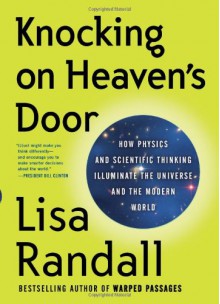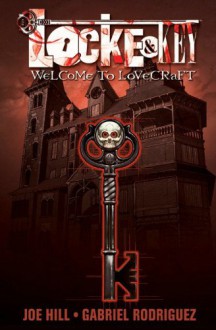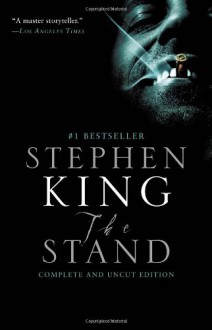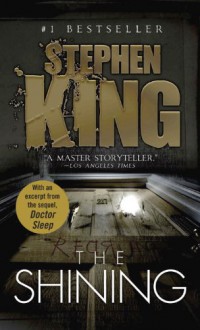
This book is a freaking door stopper. I read this the first time on a very long flight and since my other books were packed in my luggage I plugged on through this. I think maybe I went hard shrug about it all and said well that's just three stars. Reading it now years later I have no idea how I muddled through this the first time. This book is peak sanctimony Koontz. There's a damn dog and then even more dogs. Koontz does that weird thing he did for a while where he had people with disabilities either physical or mental into super special people which felt wrong in a way. I don't know if you can call it pandering or what, it just felt off and not sincere. There are like four plots in this one (if you can call them that) and a question again about religion versus science, but with no real horror elements.
"One Door Away from Heaven" is about Michelina (Micky) Bellsong a woman with a mysterious past who does what she can to save a young girl she meets. Seriously though, why do most of Koontz's characters have a mysterious past? It takes a while to figure out what happened to Micky, but one can hazard a guess. There is not much there there with Micky. Sorry, not sorry. The other characters read as paper thin too. Micky meets a young girl named Leilani who tells her her life story and at least something comes across to Micky, that the young girl is going to be killed by her stepfather. Micky has a drinking problem, but is still beautiful (I think that is said repeatedly). When she realizes that Leilani is really in danger, she does what she can by following her to keep her safe.
Leilani is a 9 year old precocious child who talks like Einstein. She has a physical disability, but shines (according to another character). I can't even with that since it started to make me think of "The Shining" and Stephen King. I think I have said this before, Koontz cannot write children. He writes them as little Buddhas and it's old. I give King some grief when he writes something that is not 100 percent amazing (still feeling salty about 11/22/63) but the man can and always has been able to write kids.
We also have a PI named Noah who is out to help Micky with her tracking down Leilani.
There is a mysterious boy named Curtis who I hope you like reading him talking about a playful presence a lot. He sucks and I cannot with him. The reveal about Curtis wasn't much of a reveal since I was going for he is really an android for most of the book.
The bad guy seems like he should be going around screeching about cooties most of the time. Preston Maddoc is a scientist (EVIL) who is very popular in the scientific world pushing out his belief in bioethics. He believes in aliens (which don't even get me started) and that those who are not perfect should be murdered. Too bad he is Leilani's stepfather. I think Koontz could have gone at this more subtle. If Koontz wanted to have a real discussion about bioethics as it relates to the poor and people who are not white, have at it. But he turned this into all bioethics is evil/wrong.
There are other characters in this one that I cannot even get into right now. One was Micky's aunt Geneva that also made me roll my eyes. For most of the book everyone doesn't meet up and then Koontz throws them all together in a way that doesn't even make any sense.
The writing didn't work. I think because for some reason Koontz wrote some characters in past tense and others in present tense. It was hard work to even get through this because that drove me up the freaking wall. This one also reminded me a bit about "Intensity" which had another woman who put herself in harm's way to save a young girl.
The flow was awful and every time someone spoke it took like ten pages to make it end. Suffice it to say that the book is just about apparently people spreading the word and there are aliens. That's all I got.
And the book ends with people talking about a riddle and here is the answer which was too much even for me.
"If your heart is closed, then you will find behind that door nothing to light your way. But if your heart is open, you will find behind that door people who, like you, are searching, and you will find the right door together with them. None of us can ever save himself; we are the instruments of one another's salvation, and only by the hope that we give to others do we lift ourselves out of the darkness into light."
"For those who despair that their lives are without meaning and without purpose, for those who dwell in a loneliness so terrible that it has withered their hearts, for those who hate because they have no recognition of the destiny they share with all humanity, for those who would squander their lives in self-pity and in self-destruction because they have lost the saving wisdom with which they were born, for all these and many more, hope waits in the dreams of a dog, where the sacred nature of life may be clearly experienced without the all but blinding filter of human need, desire, greed, envy, and endless fear.
And here, in dream woods and fields, along the shores of dream seas, with a profound awareness of the playful Presence abiding in all things, Curtis is able to prove to Leilani what she has thus far only dared to hope is true: that although her mother never loved her, there is One who always has."
My eyes finally stopped rolling. That whole thing went on forever. I don't think that Koontz gets how preachy his books come across and how off-putting it is to read some of his works. I think this was Koontz's way of flipping off his critics cause he manages to tie dogs into being connected to God even more in this one that just made me shake my head.

 Log in with Facebook
Log in with Facebook 

















